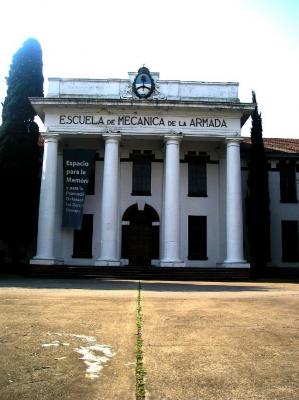How torture tends to backfire (a fictional reconstruction)

It was a few minutes after noon, an appropriate moment to grab the phone and get it off his chest. He had been calling his former torturers, asking for them by name, insulting them and laughing as he informed them that he had given the press and human rights organizations and political groups precise information about the cruel abuses committed at the concentration camp.
He was a political activist, there was no doubt about that. Who would not have attempted to oppose a dictatorship applauded by landlords, multinational corporations, the Church and the world’s most powerful country, which had claimed for itself the right to launch a world-wide anti-communist crusade whose real purpose was to protect its strategic interests. He had escaped from the concentration camp and now he was dedicating his time to denouncing the cruel treatment he had received, the tortures to which his companions were being subjected at the camp.
Like many others of his age he believed in struggling for what he called social justice and his credo was to live passionately. Was right? Was he wrong? Only history would tell. But, as we know from the text books, history has a way of awarding the winners, independently of the justice of their causes. Although, true, over time even the victims can see how their causes become part of future society's precepts.
It was passion that moved him, that gave a sense to his existence. And passion can be as true as the four seasons and as illusive as an eclipse of the moon.
"If you think you’ll get away with this, you are badly mistaken," he almost shouted into the receiver. "The news is getting around, your day has come!"
There was a deadly silence on the other end, then a gruff voice demanded:
"Who are you?"
With a sort of sardonic pleasure, he gave his name; then hung up, took in a deep breath of air, peeked carefully outside the telephone booth to see if anyone was watching and rapidly crossed the street.
Three young thugs, their hair close cut, something hard buldging from their waists, rapidly overtook him.
Animals have no language, but they know when danger is lurking. People do too, although they quite frequently ignore the signals. The former political prisoner dodged into a construction site that emerged just beyond the traffic light, hid behind the debris and threw anything he could get his hands on at the para-military squad. All in vain. A bullet pierced his lung, others penetrated his body at different points, making it quiver spasmodically.
Past and present and future rushed by as fast moving clouds, forming images that instantly collapsed into other forms. There was the sound of endlessly blowing wind. Then there then there was darkness. You might say that the darkness later became light because the man's testimony allowed lawyers to bring torturers to trial.
(This narration is based on an article published July 23, 2008 in Página 12, called "Rastros de un pasado indeleble," concerning the case of Horacio Domingo Maggio. It is a mere reconstruction and by no means pretends to faithfully reproduce the events Maggio lived through.)
0 comentarios